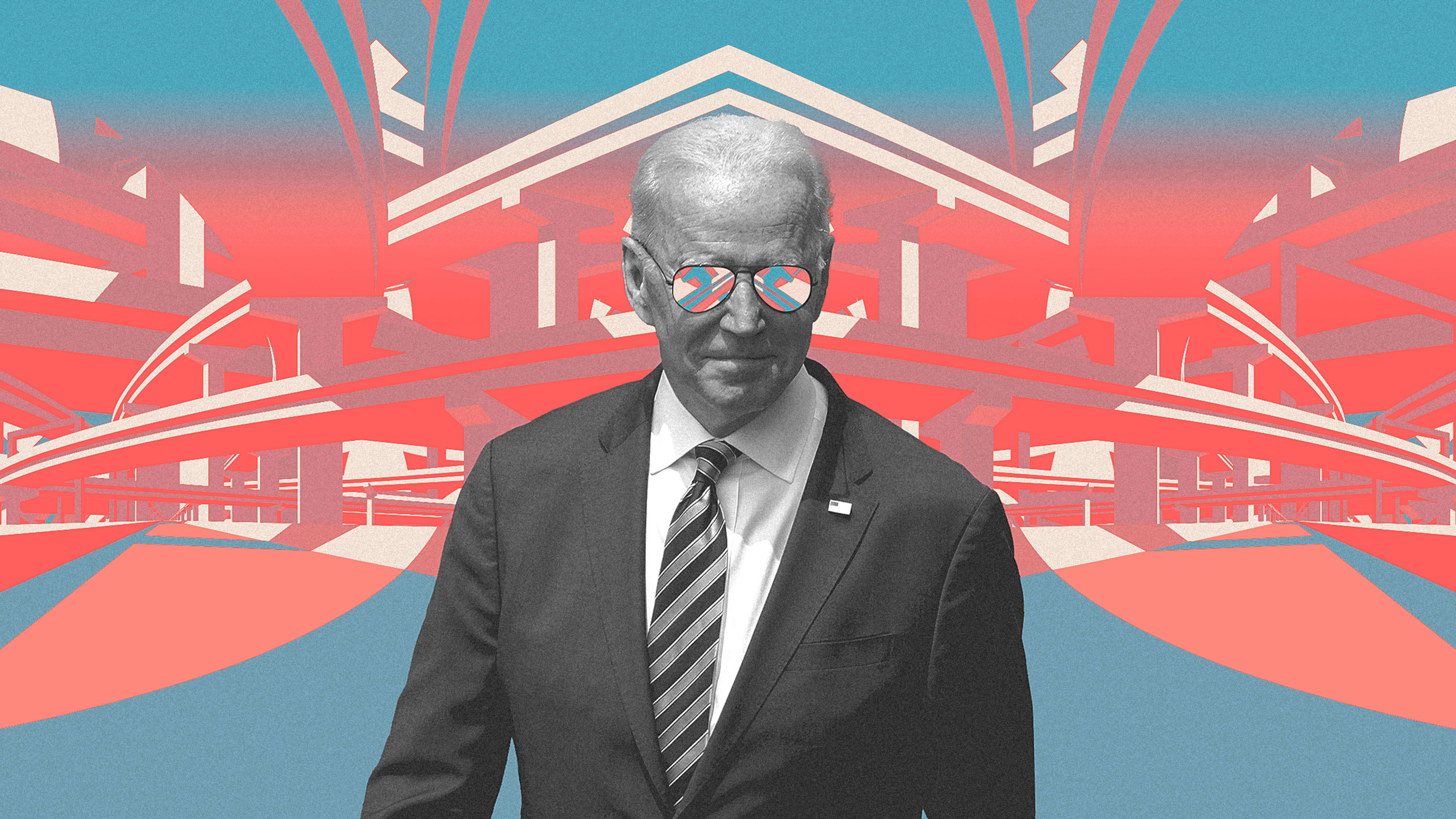The passage of the $1.2 trillion infrastructure bill, known as the Bipartisan Infrastructure Framework, brings good news and bad news for the Biden administration. The good news is, Congress finally got a major legislative victory.
The bad news is, most Americans still think Washington is completely dysfunctional. If Biden isn’t careful, even this good news is going to sour. By the time 2024 rolls around, nobody will care about a legislative victory that hasn’t yielded tangible benefits in their own lives. Biden has to get that money out the door and into projects that Americans can see, feel, and touch.
Unfortunately, a huge chunk of the bill won’t do you much good in that regard. You don’t get a lot of credit for a bridge that doesn’t fall down or a road that isn’t riddled with potholes, although those things do desperately need to be addressed. The $5 billion earmarked for airport improvements, on the other hand, could provide a solid boost, as could the $2.5 billion for electric vehicle charging stations. Expanded access to broadband access is another potential winner.
The question is, can they be done quickly enough to matter politically?
Typically, once Washington approves an infrastructure bill, the gears of the federal bureaucracy grind slowly and torturously into action. States and cities identify projects, apply for funding, endure multiple levels of review, and eventually, the money shows up. It takes forever. Over the next 12 months, the Congressional Budget Office estimates, a paltry $27.2 billion will be spent, or slightly more than .02% of the total amount appropriated in the bill.
To save itself, the Biden administration has to radically pick up the pace. Here’s how they can do it:
First, focus on the projects already underway. States have identified a backlog of projects to spend the money on. Though the protracted wrangling over the bill means we lost the chance to get started on projects before winter incapacitates some parts of the country, it’s still possible to have many ribbon cuttings by next summer. What’s important here is for the U.S. Department of Transportation to prioritize the projects that can be started immediately.
Second, lots of new, visible initiatives like those EV charging stations will be competitively granted to cities and states. Far too often, designing the perfect grant process wastes politically precious time. The Administration needs to adopt rules for the competitive grant processes fast, and these rules need to prioritize locations where activity can start now.
The infrastructure bill authorized a new process called the One Federal Decision framework to better coordinate federal agency activity on major projects at the outset. Team Biden needs to interpret and shape the framework aggressively to prevent their own appointees from looking out for their own priorities and slowing things down. It might even make sense to consider a “first-come, first-served” model that rewards those who get their applications in quickly—and can prove that they will install quickly too.
Third, find the most aggressive and obnoxious person in Washington who gets stuff done no matter what and put them in charge. This is not an appointment to placate the base or appease a particular interest group. Just find the one person who everyone will hate by the end of the process, if they don’t hate them already, but you know will make it happen. And then give them the resources, freedom, and backing to do the job, even when everyone complains.
Disrupting the customary grant making, procurement, and appropriations process will turn Washington into a den of vipers. If the Biden administration is willing to upset insiders and embrace the need for speed, maybe they have a chance of turning back a resurgent Republican party in 2024. If they’re overly worried about keeping the peace and letting the Beltway play its preferred style of “slowball,” Biden might as well start working on his concession speech. The choice seems totally obvious to me, but it does require an urgency and fearlessness that, 10 months into this administration, I’ve yet to see any trace of.
Bradley Tusk is a venture capitalist, writer, philanthropist, and political strategist. Bob Greenlee is the COO of Tusk Holdings and the former Deputy Governor of Illinois.
Recognize your brand’s excellence by applying to this year’s Brands That Matter Awards before the final deadline, June 7.
Sign up for Brands That Matter notifications here.
